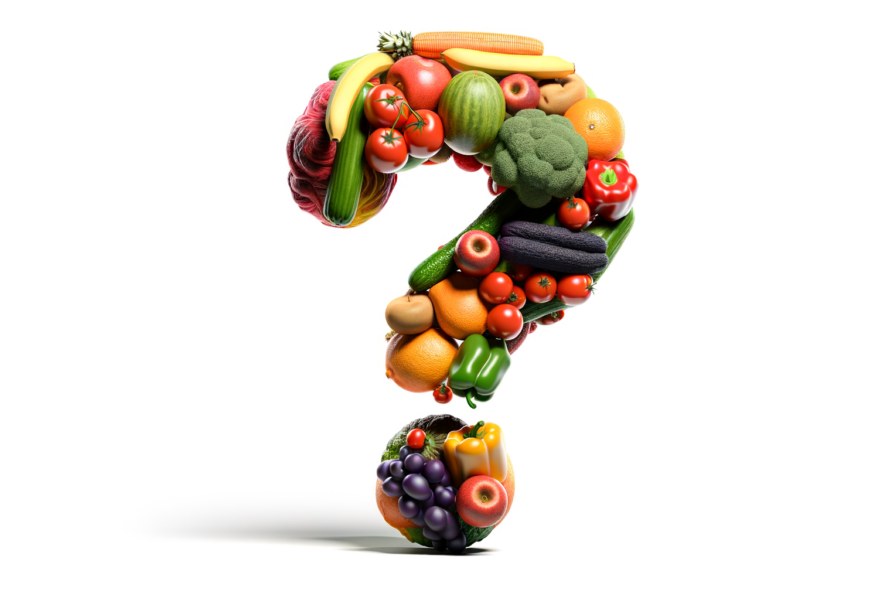Discover the Science Behind Superfoods: Unveiling the Nutritional Powerhouses
Superfoods: the term itself seems to promise extraordinary health benefits. But what does the science say? In this article, we'll delve into the world of superfoods, examining the evidence behind their acclaimed nutritional power. From antioxidant-rich berries to omega-3-packed seeds, you'll discover how incorporating these foods into your diet can boost your overall health and well-being.
What Are Superfoods?
When we talk about superfoods, we refer to nutrient-dense foods that offer exceptional health benefits. The term "superfood" is primarily used as a marketing tool to highlight foods rich in antioxidants, vitamins, minerals, and other essential nutrients. They stand out for their high phytochemical content, which helps combat diseases and boost overall health.
The concept of superfoods isn't new. Ancient civilizations like the Aztecs and Egyptians revered specific foods for their health-giving properties. The modern usage of the term gained popularity in the early 21st century as researchers began to understand the profound impact of diet on health. What sets superfoods apart is their exceptional nutrient content and the health claims backed by scientific studies.
The Nutritional Science Behind Superfoods
Superfoods often owe their status to a combination of unique nutrients, including polyphenols, vitamins, minerals, and essential fatty acids. Antioxidants like flavonoids and carotenoids help neutralize free radicals in the body, reducing oxidative stress and inflammation, which are linked to chronic diseases such as cancer and heart disease.
Vitamins and minerals also play crucial roles. For example, vitamin C boosts immune function and skin health, while potassium helps regulate blood pressure. Essential fatty acids like omega-3s, found in fish and seeds, are vital for brain and heart health.
Numerous scientific studies support the health benefits associated with these nutrient powerhouse foods. A study published in the "Journal of Agricultural and Food Chemistry" found that blueberries, which are high in antioxidants, can improve memory and cognitive function. Another study in the "British Journal of Nutrition" highlighted the cardiovascular benefits of omega-3 fatty acids in fish.
Popular Superfoods and Their Benefits
Berries (Blueberries, Acai, Goji Berries)
Berries such as blueberries, acai, and goji berries are celebrated for their high antioxidant content. These antioxidants, particularly anthocyanins, are instrumental in combating oxidative stress and reducing inflammation. Blueberries, in particular, have been shown to benefit brain health and slow the aging process. Another aspect of berries is their low calorie count and high fiber content, making them perfect for weight management and digestive health.
Leafy Greens (Kale, Spinach, Swiss Chard)
Leafy greens are nutritional powerhouses rich in vitamins A, C, and K. Kale and spinach also contain significant amounts of iron, calcium, and folate. Vitamin K is vital for bone health, while vitamin A supports vision and immune function. Consuming these dark, leafy greens can lower the risk of chronic illnesses, improve bone density, and enhance overall well-being.
Nuts and Seeds (Chia Seeds, Flaxseeds, Almonds)
Nuts and seeds provide a concentrated source of healthy fats, particularly omega-3 and omega-6 fatty acids. Chia seeds and flaxseeds are high in fiber, which aids digestion and maintains a healthy gut. Almonds can help regulate blood sugar levels, thanks to their magnesium content. These seeds and nuts are also excellent sources of plant-based protein, making them ideal for vegan and vegetarian diets.
Fish (Salmon, Mackerel, Sardines)
Fatty fish like salmon, mackerel, and sardines are among the richest sources of omega-3 fatty acids. These essential fats are critical for cardiovascular health, reducing harmful inflammation, and supporting brain function. Regular consumption of fatty fish is associated with a lower risk of heart disease, improved mental health, and better overall cognitive function.
How to Incorporate Superfoods into Your Diet
Incorporating superfoods into your diet is easier than you might think. Here are some simple recipes and meal ideas to get you started:
- Blueberry Smoothie Bowl: Blend blueberries, spinach, and chia seeds with almond milk. Top with granola and fresh berries for a nutrient-packed breakfast.
- Kale and Quinoa Salad: Toss kale, quinoa, and avocado with a lemon-tahini dressing. Add almonds for a crunchy texture.
- Omega-3 Rich Dinner: Grill salmon with a side of roasted Brussels sprouts and sweet potatoes. Sprinkle flaxseeds on top for an extra omega-3 boost.
When shopping, look for organic options to minimize pesticide exposure and seasonal superfoods for peak nutritional content. Farmers' markets often provide fresh, local options.
Debunking Common Myths About Superfoods
Despite their impressive benefits, superfoods are often surrounded by misconceptions and overhyped claims. It's important to approach these foods with a balanced perspective.
Myth: Superfoods Are a Miracle Cure
No single food can cure diseases or compensate for a poor diet. Incorporating superfoods is beneficial, but they should be part of a well-rounded diet rich in various nutrients.
Myth: Superfoods Are Always Expensive
While some superfoods like acai berries can be pricey, many are affordable and accessible. Leafy greens, berries, and nuts often fall within a reasonable budget, especially when purchased seasonally or in bulk.
Myth: All Superfoods Are Exotic
You don't need exotic ingredients to benefit from superfoods. Many everyday foods, like apples and broccoli, offer comparable health benefits and are much easier to find.
Conclusion
In summary, the scientific analysis of superfoods reveals that they are indeed packed with nutrients offering numerous health benefits. However, remember that no single food can provide all the nutrition you need. A balanced diet rich in a variety of fruits, vegetables, nuts, seeds, and lean proteins will always be the best approach. Consider adding these superfoods to your diet for an extra health boost and start experiencing their potential benefits today.
By understanding the science behind superfoods, you can make informed choices that enhance your overall health. So, next time you're at the grocery store, pick up some blueberries, kale, or chia seeds and enjoy their incredible nutritional benefits.
Explore our collection of recipes and health tips to incorporate superfoods into your diet seamlessly. Share your favorite superfood recipes in the comments below and join our community for more nutritional insights. Let's make healthy eating simple and enjoyable together!










